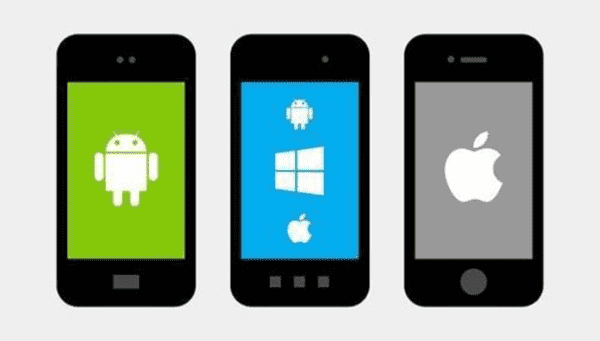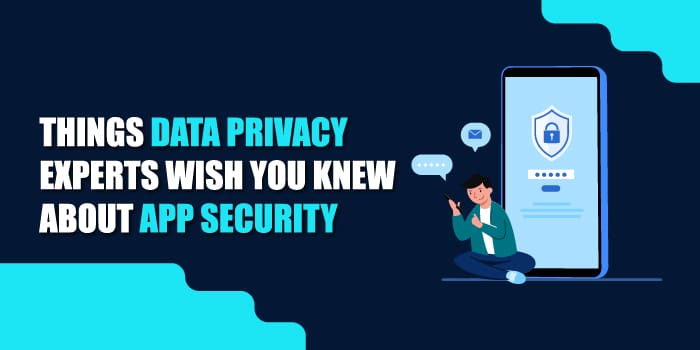Have you ever wondered that the app you have been using for so long is as safe as you think? With such a fast pace of digitalization, our smartphones have become multifunctional devices with the help of innumerable apps on mobile phones. These apps are what make your smartphones so distinctive. The Apps ask for your personal data and permissions to access different data sources on your mobile phones ranging from your browsing history to your location or contacts. But have you ever pondered upon how these apps are using this data? Using big data and analytics to study user’s online browsing patterns, individual preferences, etc., for showing commercial campaigns have become the new norm.
According to a study conducted by Verizon, 2020 Mobile Security Index, in 2019, 43% of organizations faced mobile security breaches. It also predicts that those who already experienced a mobile security lapse are twice as likely to face a mobile security relapse.
Another study, the 2020 McAfee Mobile Threat Report states that hidden mobile applications downloaded from mostly illegitimate sites were responsible for 50% of user’s mobile threats in 2019. Also, the numbers of malicious apps increased by 30% from the year 2018 to 2019.
You must have come across many news pieces of even most reputed apps that see attacks from hackers and data breaches have left users’ data exposed. On the pretext of data collection, some of these apps ask for permissions much more than what is required by them for normal operations. What if the data that you have trusted with these apps is breached?
Although, you can have some control over the access granted to these apps through phone settings, and you can see and delete what data Google has collected about you and choose privacy settings to stop these apps from tracking. But still, there is no way to find out whether these apps are not tracking you even if you have asked them not to. So, is there nothing that we can do about it? The good news is, yes, there are a few good security practices that can harden your smartphone security and safeguard your data privacy. Then, how to keep security for apps? Here are some very useful hacks that will surely help you improvise your data privacy status while working with these apps.
1: Secure Yourself by Downloading Apps Only from Google and App Stores

Please stay safe and make it a regular practice to download apps only from the official store or Google and App stores. These stores have a reputation of first putting the apps on their stores, only after putting them through a rigorous verification procedure, having them meet a high quality of user data protection. However, not all the apps on these stores are reliable. Still, these apps have to abide by strictly presenting a specific privacy policy for their users, elaborating on the procedures to protect users’ data.
Downloading apps from unofficial sites puts you at high risk of getting infected with viruses, malware, etc., exposing you to many complex cyber threats like DDOS attacks, which can cause heavy losses to organizations. There are a few more considerations that one must keep in mind while deciding on the apps to be downloaded to your system. Always check the publisher’s credibility, don’t go for the ones that have only one app to their portfolio. Check for the reviews of the apps and the period for how long it has been there on the store so that you can get to know any real issues with it.
You should also be aware of some apps using fraudulent reviews to impress users. Learn to see the difference between genuine and fake reviews put out there. Fake reviews are usually recognizable with many high ratings with no explanations, no descriptions, etc. However, the best reviews to be considered would be through your peers.
2: Using Code Signing to Secure Mobile Apps
It is not wrong to say that using Code Signing to secure mobile apps will occupy the top position in the list of suggestions of App Security Guide of the greatest number of Data Privacy experts. But, what is code signing? Code Signing is a process that essentially involves attaching a digital signature by the developers to their software, codes, or apps. This guarantees that the downloaded app has not been altered after the digital signing was done. It also gives authentication to the publisher of the app.
If any modifications are done to the app by a third party, then when the app is downloaded by the user and the system checks the signature, a warning is immediately flashed to the user for the app being unsafe. This saves the user from any potential malware infections. So, here comes the role of the Code Signing Certificate. It offers an effective solution to protect the integrity and authenticity of the mobile apps that are downloaded and installed. Code signing certificates can be purchased from many reputed Certificate authorities (CA), depending on your budgets and security requirements. Moreover, it helps build trust with the users that your app is safe for downloading.
3: Pay Full Attention to Credibility Research of the App or the Publishing Company
Although the credibility of any app or a company is difficult to know at the face of it, there are a few very useful tips that can help you know a good deal about the past performance records or give a glimpse into any history of data breaches. First, check if any online frauds or scams have been associated with the company in any way. Next, look for how the company responded to, in such situations, whether data leaks are common occurrences with the app.
This little information collected from Google can give you a fair idea of the reputation of the app and its publisher and help you in deciding whether to download the app or not. As a thumb rule, you must not go for the app if it is the sole production of the developer or if the publisher in any way was associated with controversial apps.
4: Be Watchful of The Permissions You Grant to The Apps
It is always advisable to think twice before allowing certain permissions to apps. Think whether the permissions being asked for are required for carrying out the functions of the app. If not, there is every reason for you to believe otherwise and doubt the app’s intent. A very good pointer to some shady intent is to note how fast your battery is getting discharged after downloading a certain app. This could well be pointing towards some malicious program continuously running in the background. Stay away from such harmful apps.
5: Protect Yourself on Public Wi-Fi by Always Using a VPN

Working on a public network on your mobile phone has always been full of risks, with your crucial data getting into the wrong hands. Therefore, using a Virtual Private Network(VPN) is always advisable when on a public network. A VPN encrypts all your communication with the internet and hides your IP address when you use the internet, making you invisible to everyone else on the network, thus protecting you from cyber-attacks and data breaches. In addition, it safeguards you from other users who might try to gain access to your phone, working on the same free public network.
A VPN also helps you access wider content as it gives you full access to it without applying any filtration on the internet. There are many VPN apps available in Google and App stores. Settle for the one with a clean track record and go through the terms and agreements section carefully so that you are fully aware of what data will be collected and where it will be stocked.
6: Limit Information Shared on social media
Too much private information shared on social media can be a real cause of concern in any unfortunate incident of a data breach. So shell out the only minimum required information about yourself which is an absolute must and not more. Companies these days are involved in collecting all this information and profiling your likes, dislikes, location, family size, etc. So you would never like to share on public platforms lest it gets into the hands of the wrong players and is misused.
7: Take Regular Software Updates

Be very consistent with taking any operating system updates for your mobile phones. It protects you from any vulnerabilities in the previous version and updating, only helps you to eradicate any potential future cyberattacks. The new updates also make your phones work with better speed and increased efficiency.
8: Having a Password Manager Is a Must
Protecting and managing different accounts on the internet is not so easy, especially when you have put in some effort in using strong password protection for each one of them. Protecting your account with a strong password which is a long one with a good mix of upper- and lower-case characters, numbers, and special characters, is good to protect your account from brute force attacks by hackers. But remembering them and then safeguarding them can be a real task. Here the Password Manager comes into the picture, which safely stores all your account details and passwords in a safe digital vault and assists you in generating strong passwords, making your life very simple.
In conclusion, it can be said that with so much personal data shared by the users with the various apps on your smartphones in this era of the digital economy, it is only befitting for the users to have control and demand autonomy over their crucial information. Therefore, it is only in your interest to give due importance to the privacy settings on your mobile phones and be watchful of the permissions you give to the various apps before downloading them and weigh your data privacy against the services offered by the individual apps and then only take a decision for downloading them onto your smartphones. By incorporating some good security practices discussed above into your daily online behavior can take you far with safeguarding your precious mobile phone data and at the same time improving your data privacy health.
